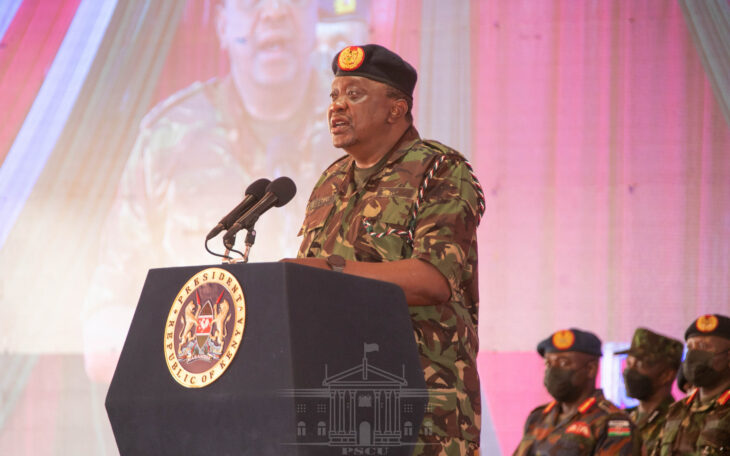NAIROBI, Kenya, Oct 29 – Countries in the Horn of Africa and Great Lakes Region have in recent weeks experienced a series of tumultuous events as a result of the rapidly changing social-political dynamic landscape, in turn threatening the security and stability of various nations.
From terror attacks in Uganda and the Democratic Republic of Congo (DRC) to the ongoing hostilities in Northern Ethiopia to a military coup in Sudan and political instability in Somalia.
Amidst the increasing political temperatures and terror attacks, Kenya seems to be an island of peace in a sea of unrest.
What exactly is Kenya’s role in resolving these conflicts amidst concerns of a ‘spillover’ into her borders?
Less than three years ago, Sudan ushered in what was seen globally as a revolution that would steer the country into the future following a nearly 30-year dictatorial rule under the ousted leader, Omar Al Bashir.
On Monday, amidst a transition to total civilian rule, the country’s head of the military and security council while in the nation’s capital Khartoum announced that the country was now under their control.
The country’s top general Abel Fattah al-Burhan, cited ‘avoiding a civil war’ as the main reason behind seizing power from Prime Minister Abdalla Hamdok.
Diplomacy experts say that Kenya’s eyes and ears should be alert, in case events further North become a regional conundrum.
“One thing we have to realise is that the history of our countries and the challenges they face. Challenges of state formation, the separation of Sudan into two different countries, especially affected the North,” Dr. Mumo Nzau, Diplomacy, and Security Scholar told Shahidi News.
Across the border, Ethiopia has continued its onslaught against rebels in its Tigray region, a matter that Kenya has said before is looking at with a keen eye.
“The problems in Tigray are those of state formation. There is no country that would want one part of it to secede or break out. However, how certain contentious matters are handled and weaned out are very important so that they don’t jeopardise sub-regional security and stability,” he said.
In the great lakes region, the thorny issue of terror has reared its ugly head in eastern DRC and Uganda.
The attacks took place within hours of each other as 11 civilians were killed by jihadist fighters in eastern DR Congo, while one person was killed in an IED explosion at an eatery in Kampala.
Groups affiliated with Islamic State (IS) claimed responsibility for both attacks.
“We are working very closely with the countries in the region to ensure that some of the foreign fighters drawn from far and wide, some of them locally, who have been involved in those places, that they are brought to book, especially those that are bearing arms,” said Dr. Mumo.
Experts believe that Kenya, which has been on the receiving end of terror, is keeping its guard up in order to avoid or avert any attempt within its borders that would compromise its security.
“Kenya’s position at the UNSC is very tactical because the problems that are affecting the global south, some of which are manifesting in issues of governance, are delicate and they need to be handled with a lot of negotiation foresight,” he said.
While the region finds the best possible ways to fix the issues unique to each member, Kenya says that it will stand by its neighbours as has been its tradition.
Want to send us a story? Contact Shahidi News Tel: +254115512797 (Mobile & WhatsApp)


